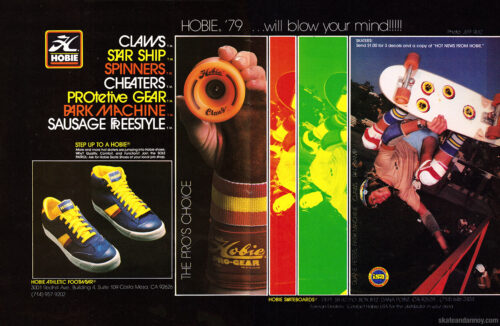The Philosophy of Punk: More Than Noise
Craig O’Hara
AK Press.
Copyright Date: 1999
Review Date: 2000
I’d like to preface this review by stating a simple rule that I have found to be very useful: When in doubt, avoid any product that contains the word “punk.” I decided to take a chance based on the quotes printed on the back cover. Maximum Rocknroll said it was a very in depth study of punk values and how punk looks at the straight world. Factsheet 5 reccommends it to young punks looking for history and old timers interested in the photos. The clincher came when I glanced over the preface. This is the fourth printing of this volume. The first two editions were basically photocopied with increasing levels of production quality. It has been translated into Chinese and Lithuanian where it was confiscated by government authorities for being vile, rebellious, and offensive. Good enough for me.
Before I began reading it I was concious of several hurdles that this book was going to have to overcome. Any time you try to write something serious about the philosophy of punk you run the risk of sounding like a whiny highschool kid who probably gets beat up a lot. I thought it could be really interesting to have an intelligent discussion of how it could be possible to be “punk” in the 90’s given everything that has recently happened, namely the wholesale assimilation of punk attitudes and images into mainstream culture. Revivalism tends to be fad and fashion oriented. Paul Weller once said, “How can I be a revivalist when I’m only 18 years old?” or something to that effect. Today’s young punks (if they can exist) have no frame of reference for the movement. In the US, Punk didn’t really start to filter into the more conservative areas like the Midwest until the mid eighties. “New Wave” was easier to swallow, as evidence by the huge onslaught of “80’s New Wave Hit” compilations. While 80’s punkers were feared or ridiculed, 90’s kids have pre packaged punk via the ultra bland MTV with heavy rotation of bands like the Offspring. Green Day can be seen on MTV or heard on primetime shows like E.R. and Sienfeld. What do you do when your rebellion is marketed by the status quo?
Having set the stage, I began reading with an open mind. I have to give credit to the author for undertaking this volume with (I assume) nothing but the most noble intentions. O’Hara is a Pennsylvania scenester with credentials. Punk Philosophy attempts to be a scholarly type of analysis, but unfortunately falls vicitim to naivetee, bias and inconsistant logic from time to time. Without nit picking too much, let’s just say that at times it seems like it could have been written by a young kid who has been punk for a couple years and has a few things to bitch about his scene. In fact, much of the printed matter is various quotes from MRR and Profane Existance, an anarchist zine from Minneapolis. O’Hara tries to give the impression of Punk Phillosophy as a legit resource by means of footnotes and bibliography, but still includes testimonial that aproximates “I was at a show once, and to my horror, this horribly unjust (or unpunk, or uncool) thing happened.” O’Hara seems to waver between objectiveness and petty criticisms, (Err.. kind of like my reviews). The end result is that it reads like a bad high school term paper, or better yet, a typical letter to MRR. This is not necessarily a put down on MRR, so please spare me the hate mail, I’ve got filters and I don’t care if you think I’m a disgrace to punk. MRR has it’s place, but you have to take it for what it’s worth.
I can’t fault O’Hara for trying. He obviously put in a lot of effort trying to cover all the bases: anarchism (not cartoon punks), feminism, homophobia, straight edge. etc. “The Philosophy of Punk” admittedly concentrates on punks that are active within the scene as well as society at large. O’Hara’s quick to point out that this book covers things as he sees them, and if you’re scene isn’t represented, write your own book. Well great. I have a feeling that your average punk (if there is one) is not particularly interested in the roots of european anarchism. I also have to disagree with some of his theories and historic facts, but then everyone is entitled to their own interpretations. This book tries hard but falls short. It maybe worthwhile to a kid who’s on his own in a small town somewhere, starving for information and looking for something to believe in, but I’d hate for this to be the sole source of information or inspiration. Anyone who is seriously interested in learning something will likely be disappointed, and it’s not strong enough to change attitudes in your typical mindless thugs. Noble cause, flawed delivery. If the intentions weren’t so lofty it would be easier to be a little less harsh in judgement.
Rating: Two and a half stars out of five if you’re out of high school, three if you’re still there, but only if you live in a small town.
171 pgs. Perfectbound $12.00











